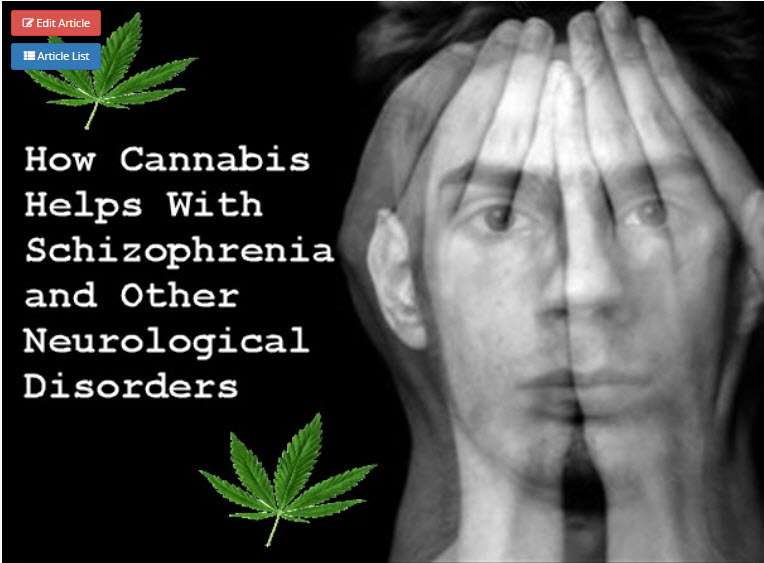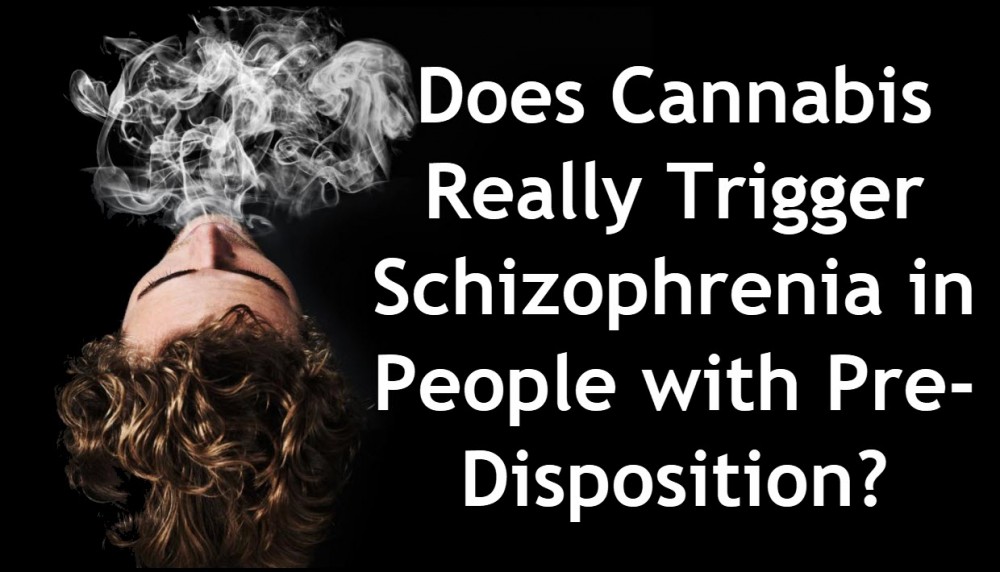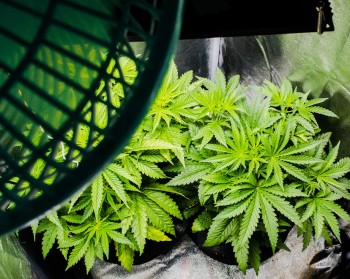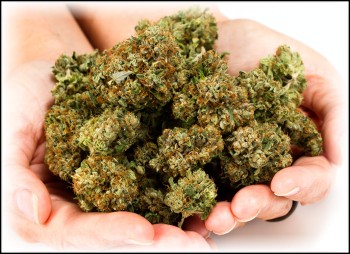
One of the main concerns about cannabis legalization from those who oppose such policies is the impact on those with mental conditions such as Schizophrenia. We’ve been told on numerous occasions about the dangers of cannabis legalization and the potentials for people who are predisposed with the psychiatric condition to be triggered through ingestion.
I have argued on several occasions that while cannabis may serve as a catalyst for the triggering of an episode, so can any high stress situation like someone suddenly losing their employment, a death in the family, etc.
Schizophrenia doesn’t need cannabis to be its conduit. It can manifest utilizing any traumatic experience as a catalyst.
Now, after several years of legal cannabis – research in Canada is showing that there has not been a significant increase in psychosis or schizophrenia post cannabis legalization.
“Cannabis legalization in many jurisdictions worldwide has raised concerns that such legislation might increase the burden of transient and persistent psychotic illnesses in society”, states the study’s researchers. “Our study aimed to address this issue.” - Source
The researchers utilized the Emergency Department’s reporting systems in Alberta and Ontario to analyze the data.
…researchers “employed Seasonal Autoregressive Integrated Moving Average (SARIMA) models to assess associations between Canada’s cannabis legalization (via the Cannabis Act implemented on October 17, 2018) and weekly ED presentation counts of the following ICD-10-CA-defined target series of cannabis-induced psychosis (F12.5; n = 5832) and schizophrenia and related conditions (“schizophrenia”; F20-F29; n = 211,661), as well as two comparison series of amphetamine-induced psychosis (F15.5; n = 10,829) and alcohol-induced psychosis (F10.5; n = 1,884).” As reported by The Marijuana Herald
According to the findings, researchers reported “no evidence of significant step-function effects associated with cannabis legalization on post-legalization weekly ED counts of: (1) cannabis-induced psychosis [0.34 (95% CI -4.1; 4.8; P = 0.88)]; (2) schizophrenia [24.34 (95% CI -18.3; 67.0; P = 0.26)]; (3) alcohol-induced psychosis [0.61 (95% CI -0.6; 1.8; P = 0.31); or (4) amphetamine-induced psychosis [1.93 (95% CI -2.8; 6.7; P = 0.43)].”
This is something that we in the cannabis community have observed for many years now. Despite the apparent wide spread use of cannabis, the statistical prevalence of Schizophrenia has remain relatively stable for several years now.
When monitoring mental health, there are far more worrisome things we need to be taking a look at such as the increase of suicide and attempted suicide by teenage girls for example. How about the alarming rate of teen school shootings?
Surely, these are far more important in the context of societal safety than Schizophrenia, a condition that roughly affects 1.2% of the US population. This isn’t to say that Schizophrenia is a laughing matter. On the contrary, we need to pull resources to provide publically funded treatment for these individuals – however, there have been numerous studies on the subject matter and it seems that it’s one of the “top priorities” of mental health experts these days, at least in relation to the headlines that generate the most clicks.
Once more, I personally don’t think that we need to spend so much time studying things that affect relatively a small portion of the total population. Suicide is the leading cause of death in the US within the age group of 10-34 according to the CDC.
I’m also not saying that we should simply not study these correlations when it comes to cannabis, however – when it comes to utilizing our collective resources there are more pressing matters to address. This is perhaps one thing that the pandemic has enabled us to see – the sheer inadequacies of the intellectual community. It’s not their fault entirely – unfortunately, politics stuck its big finger in the midst of virtually every societal activity and warped the original purposes of institutions to engage into tribal thinking.
However, politics don’t act without someone pushing its buttons and that can directly be laid at the feet of the mega corporations of the world. Big Tech, Big Pharma, Big whatever – they have purchased politicians like they are baseball cards, they frequently create false narratives within the scientific community and influence people’s perception of reality via Native Advertisement.
Unfortunately, these faceless corporations receive all of the perks of being a “legal entity”, but none of the accountability as your average human. Thus, to pinpoint who the exact people are responsible for the general corruption and deception is difficult. After all, corporations are compromised of individual people, except they are shielded from accountability.
Where do we go from here?
Since the 1970s and even before that, the government funded institutions have been eagerly trying to uncover “what’s wrong with cannabis” and frequently came up empty handed. I have written on so many bunk papers from “official sources” and “experts in the field” – that my trust in academia has taken a significant hit.
I have to make certain of how people conducted the research and whether their results can be replicated by others before I take anything more seriously.
I wrote this piece to showcase how personal agendas can create evidence to support their narratives. There really isn’t much we can do about that, however, it also doesn’t mean we are powerless to do anything about it.
I encourage people to learn how to interpret these studies for themselves, to begin to develop a general understanding on how to analyze the findings. Make up your own mind on these important topics and don’t succumb to the impressions of “headline-science”.
We’ve been warned about the dangers of cannabis and schizophrenia and the “potential mental health catastrophe!” however, we haven’t seen any of that. The fact of the matter is that when you legalize a drug, the people who consume the drug will continue to buy it. People who were going to enter into the drug market now will simply become consumers of the legal market – and society keeps on going.
There will most certainly be negatives that come from the action – there will be people who’s psychosis is triggered from cannabis. However, this will not be the norm and instead of trying to dissuade the entire population from legalizing – you could rather focus your energy on creating treatment for the people who will be negatively impacted through legalization.
CANNABIS AND SCHIZOPHRENIA, READ MORE...
HOW CANNABIS CAN HELP WITH SCHIZOPHRENIA, READ MORE.
OR..
CAN MARIJUANA TRIGGER SCHIZOPHRENIA IF YOU ARE PRE-DISPOSED?







